The Coalition for RECOM, a cross-border campaign to set up a truth commission to establish the full facts about the Yugoslav wars, has failed so far to get the unanimous support of governments across the region.
Despite this, however, the coalition says that it will push on with researching a full list of all those who were killed, imprisoned, tortured or went missing during the bloody dissolution of Yugoslavia, some of its members told BIRN.
The coalition, an alliance of NGOs in post-Yugoslav countries, last year published a map that documents war victims in the former Yugoslavia and presents data on around 130,000 people who were killed or went missing in the various conflicts.

 The Coalition for RECOM, which is campaigning to establish a regional truth commission for the Yugoslav wars, is working to create the first full list of all those killed in the Balkan conflicts from 1991 to 2001.
The Coalition for RECOM, which is campaigning to establish a regional truth commission for the Yugoslav wars, is working to create the first full list of all those killed in the Balkan conflicts from 1991 to 2001.





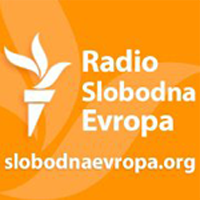

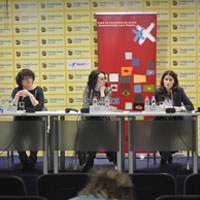
 On Monday, 23 December 2019, the Humanitarian Law Center (HLC) presented its fifth
On Monday, 23 December 2019, the Humanitarian Law Center (HLC) presented its fifth 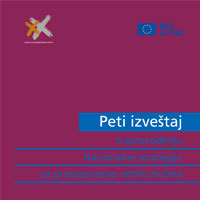
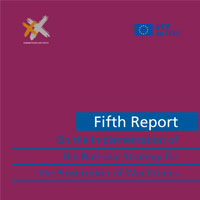 The Humanitarian Law Center (HLC) has been monitoring and providing support to war crimes trials ever since the first war crimes proceedings conducted in Serbia in 2002. The HLC is the only organization that has been continuously monitoring and analyzing war crimes trials in Serbia and informing the public at home and abroad about them. The HLC has been filing criminal complaints against suspected perpetrators with the Office of the War Crimes Prosecutors (OWCP), and it has also been identifying witnesses and victims and encouraging them to give evidence in court, and thus contribute to achieving justice for past crimes.
The Humanitarian Law Center (HLC) has been monitoring and providing support to war crimes trials ever since the first war crimes proceedings conducted in Serbia in 2002. The HLC is the only organization that has been continuously monitoring and analyzing war crimes trials in Serbia and informing the public at home and abroad about them. The HLC has been filing criminal complaints against suspected perpetrators with the Office of the War Crimes Prosecutors (OWCP), and it has also been identifying witnesses and victims and encouraging them to give evidence in court, and thus contribute to achieving justice for past crimes.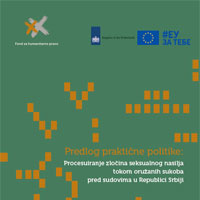
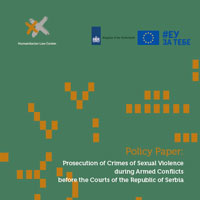 In 1991 and 1992, while conflict took place in Bosnia and Herzegovina (BiH), the international community was interested in allegations by the media and non-governmental organisations that sexual violence was frequently committed. As a result, certain domestic and international organisations, began investigating those media allegations, and the UN Security Council formed the Panel of Experts, with the aim of determining whether sexual violence was strategically used as a weapon of war. The report submitted by the Panel of Experts influenced the establishment of the ICTY in 1993 and the creation of a new legal framework dealing with sexual violence.
In 1991 and 1992, while conflict took place in Bosnia and Herzegovina (BiH), the international community was interested in allegations by the media and non-governmental organisations that sexual violence was frequently committed. As a result, certain domestic and international organisations, began investigating those media allegations, and the UN Security Council formed the Panel of Experts, with the aim of determining whether sexual violence was strategically used as a weapon of war. The report submitted by the Panel of Experts influenced the establishment of the ICTY in 1993 and the creation of a new legal framework dealing with sexual violence.